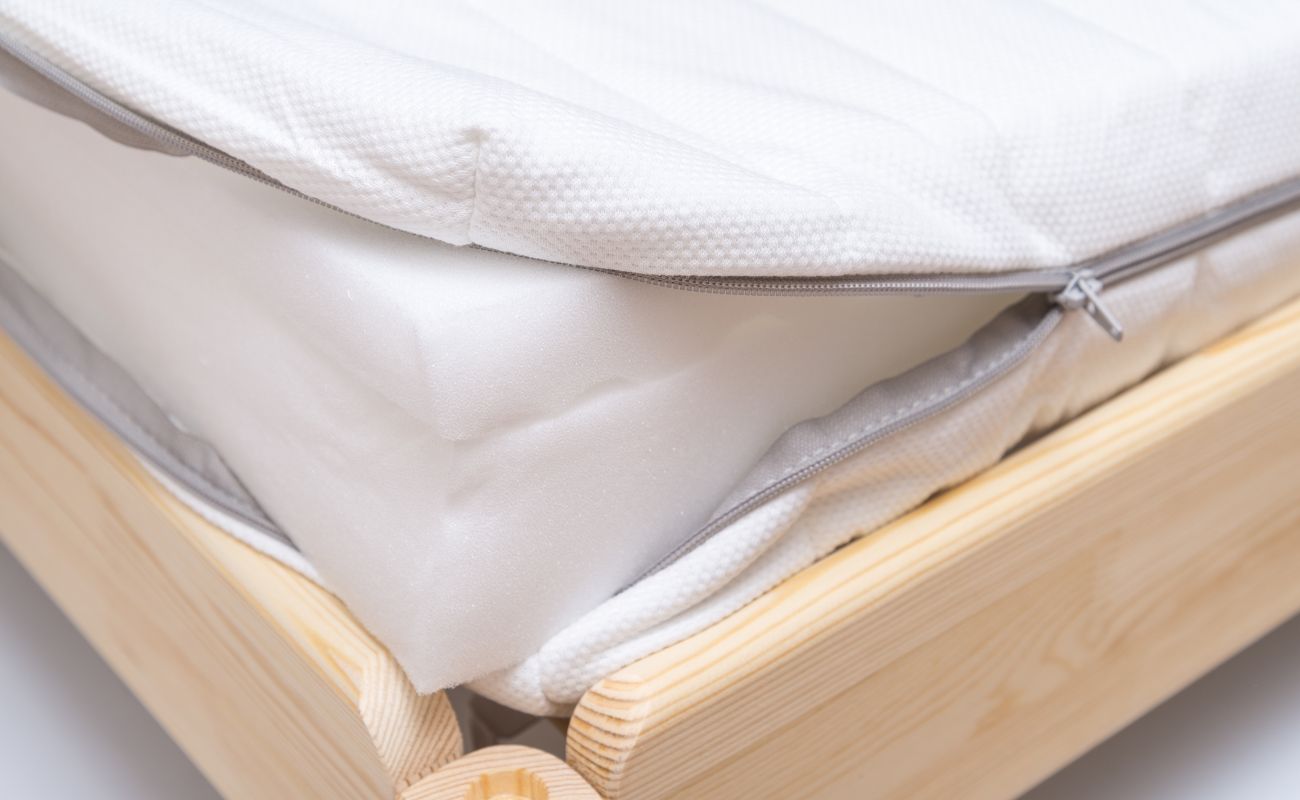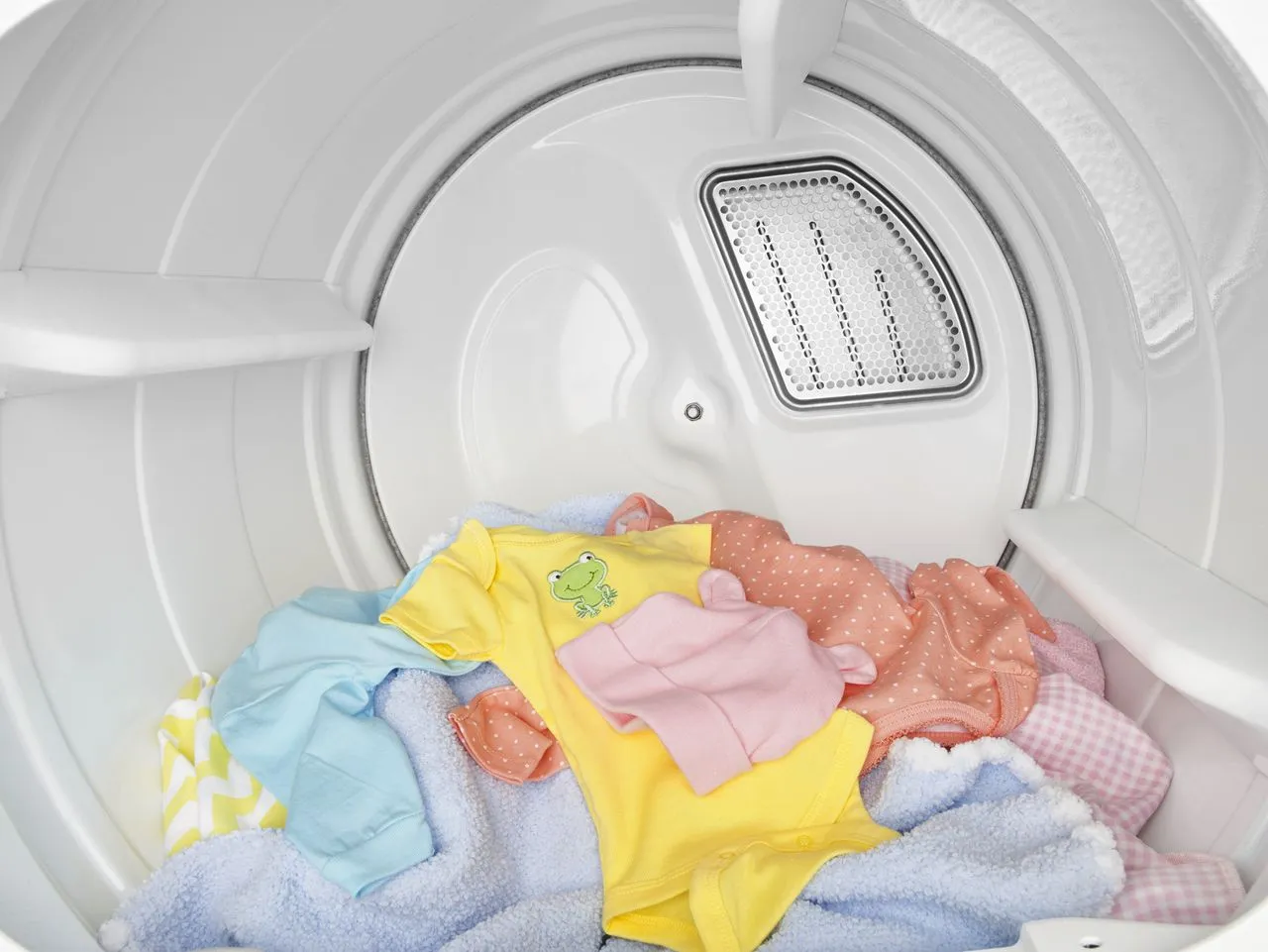

Articles
How Long Does A Microwave Oven Last
Modified: January 5, 2024
Discover the lifespan of a microwave oven and how long you can expect it to last. Read our informative articles for valuable insights and tips.
(Many of the links in this article redirect to a specific reviewed product. Your purchase of these products through affiliate links helps to generate commission for Storables.com, at no extra cost. Learn more)
Introduction
With the advancement of technology, microwave ovens have become an essential appliance in most households. From reheating leftovers to cooking quick meals, these appliances have made our lives more convenient and efficient. However, like any other electronic device, microwave ovens also have a limited lifespan and may eventually need to be replaced. In this article, we will discuss the factors that affect the lifespan of a microwave oven, the average lifespan of these appliances, signs that indicate a microwave oven is reaching the end of its lifespan, and some tips to extend its lifespan.
Before diving into the details, it’s important to note that the lifespan of a microwave oven can vary depending on various factors. It’s not uncommon for some microwave ovens to last for many years, while others may require replacement sooner. Understanding these factors can help us make the most of our microwave ovens and potentially increase their lifespan.
Key Takeaways:
- Microwave ovens can last 8 to 10 years with proper maintenance and care. Factors like build quality, frequency of use, and power surges influence their lifespan. Recognizing signs of wear and addressing issues promptly can help extend their longevity.
- To extend the lifespan of a microwave oven, regular cleaning, using proper containers, and avoiding overloading are crucial. Following manufacturer’s guidelines and addressing issues promptly can ensure reliable and safe operation for years to come.
Read more: How Does A Microwave Oven Work
Factors that affect the lifespan of a microwave oven
Several factors can influence the lifespan of a microwave oven. By understanding these factors, you can take appropriate measures to ensure your microwave lasts longer. Here are some key factors to consider:
- Build quality and brand: The build quality and brand of a microwave oven play a crucial role in its lifespan. Higher-quality appliances from reputable brands often have durable components and better craftsmanship, resulting in a longer lifespan.
- Frequency of use: How often you use your microwave oven can impact its lifespan. Continuous and heavy usage may strain the appliance’s components, leading to increased wear and tear over time. Conversely, occasional use can help prolong its lifespan.
- Maintenance and cleaning: Proper maintenance and regular cleaning can significantly extend the lifespan of a microwave oven. Accumulation of food particles, spills, and grease can affect its internal components and lead to malfunctions. Regularly wiping down the interior, cleaning the turntable, and keeping the exterior clean can help prevent such issues.
- Power surges and electrical problems: Power surges and electrical problems can cause damage to the sensitive electronic components of a microwave oven. It is advisable to use a surge protector or invest in a whole-house surge protection system to minimize the risk of damage from electrical issues.
- Location and ventilation: The location and ventilation of a microwave oven can impact its lifespan. Placing the appliance in a well-ventilated area, away from heat sources and moisture, can help prevent overheating and potential damage to its internal components.
By considering these factors and taking appropriate precautions, you can help prolong the lifespan of your microwave oven and ensure it operates efficiently for years to come.
Average lifespan of a microwave oven
The average lifespan of a microwave oven can vary depending on several factors. Typically, a well-maintained microwave oven can last between 8 to 10 years. However, it’s important to note that this estimate is not set in stone and can vary based on the factors mentioned earlier.
The build quality and brand of the microwave oven heavily influence its lifespan. Higher-end models from reputable brands tend to be constructed with more durable components, which can contribute to a longer lifespan. On the other hand, lower-quality or budget models may have a shorter lifespan due to subpar materials and craftsmanship.
The frequency of use also impacts the longevity of a microwave oven. If you use your microwave oven multiple times a day for various cooking tasks, it may experience more wear and tear compared to one that is used sparingly. Over time, the repeated heating and cooling cycles can take a toll on the appliance’s internal components, potentially shortening its lifespan.
Maintenance and cleaning play a vital role in extending the lifespan of a microwave oven. Regularly cleaning the interior and exterior of the appliance helps prevent the buildup of food particles, grease, and spills that can damage its components. Additionally, ensuring proper ventilation and avoiding placing the microwave oven near heat sources or moisture can also contribute to its longevity.
Furthermore, power surges and electrical issues can significantly impact the lifespan of a microwave oven. Sudden voltage fluctuations can damage the sensitive electronic components of the appliance. Using a surge protector or investing in a whole-house surge protection system can help protect the microwave oven from such electrical problems.
It’s important to keep in mind that the average lifespan of a microwave oven is not a guarantee. Some appliances may last longer, while others may require replacement sooner. By considering the factors mentioned above and implementing proper maintenance techniques, you can maximize the lifespan of your microwave oven and get the most out of your investment.
Microwave ovens typically last 9-10 years with proper maintenance. To extend its lifespan, clean regularly, avoid overloading, and use microwave-safe containers.
Signs of a microwave oven reaching the end of its lifespan
Like any appliance, a microwave oven will show signs that it is reaching the end of its lifespan. Recognizing these signs can help you determine when it’s time to consider replacing your appliance. Here are some common indicators that your microwave oven may be nearing the end:
- Decreased heating performance: One of the first signs that a microwave oven is reaching the end of its lifespan is a decrease in heating performance. If you notice that your food takes longer to heat up or is not heating evenly, it could indicate that the internal components, such as the magnetron or the heating element, are deteriorating.
- Loud or unusual noises: Unusual noises, such as grinding, buzzing, or rattling, coming from your microwave oven may signal that something is wearing out or damaged. These noises could be indicative of failing motors, loose components, or worn-out turntable mechanisms.
- Frequent breakdowns: If your microwave oven starts experiencing frequent breakdowns, where it stops working or malfunctions regularly, it may be a clear indication that it is approaching the end of its lifespan. Constant repairs can become costly and may not be worth the investment as the appliance ages.
- Unresponsive control panel or buttons: A worn-out microwave oven may have an unresponsive control panel or buttons. This can include unresponsive touch panels or buttons that require excessive force to operate. These issues can make it challenging to control and use the appliance effectively.
- Burnt or unusual smells: Burnt or unusual smells emanating from the microwave oven during operation can indicate internal components overheating or malfunctioning. It’s essential to address these smells promptly, as continuing to use a microwave oven with such issues can lead to potential safety hazards.
- Visible damage or wear and tear: Finally, visible damage or excessive wear and tear on the microwave oven may suggest that it is nearing the end of its lifespan. Cracked or damaged doors, chipped paint, or rust can compromise the appliance’s performance and safety.
If you notice one or more of these signs in your microwave oven, it may be time to start considering a replacement. Although repairs might be possible, it’s important to weigh the cost of repairs against the potential lifespan of the appliance and consider investing in a new microwave oven that will provide reliable performance and safety for years to come.
Tips to extend the lifespan of a microwave oven
While the lifespan of a microwave oven is largely dependent on various factors, there are several steps you can take to prolong its longevity. By following these tips, you can help maintain the performance and efficiency of your microwave oven:
- Regular cleaning: Clean the interior and exterior of your microwave oven regularly to prevent the buildup of food particles, spills, and grease. Wipe down the interior with a damp cloth or sponge, and remove any removable parts, such as the turntable, for a thorough cleaning.
- Use microwave-safe containers: Always use microwave-safe containers when heating or cooking food in your microwave oven. Improper containers can cause damage to the appliance and may even pose safety risks.
- Avoid overloading: Avoid overloading the microwave oven with oversized or heavy items. Overloading can strain the appliance’s motor and components, leading to premature wear and tear.
- Use proper power levels and cooking times: Use the appropriate power levels and cooking times specified in your microwave oven’s manual. Overcooking or overheating food can put unnecessary stress on the appliance and decrease its lifespan.
- Avoid running empty: Never run your microwave oven empty. Running it without food or liquid can cause damage to the magnetron tube, which emits the microwaves for cooking.
- Ensure proper ventilation: Make sure your microwave oven has sufficient ventilation space around it. Blocked vents or insufficient airflow can lead to overheating, which may damage internal components.
- Protect against power surges: Invest in a surge protector or use a whole-house surge protection system to safeguard your microwave oven against power surges and electrical issues.
- Address issues promptly: If you notice any signs of malfunction, strange noises, or burning smells, address the issues promptly. Ignoring these signs can lead to further damage and potential safety hazards.
- Follow manufacturer’s guidelines: Always follow the manufacturer’s guidelines and recommendations regarding installation, cleaning, and maintenance of your microwave oven. This will help you ensure that you’re using the appliance correctly and taking proper care of it.
By implementing these tips, you can extend the lifespan of your microwave oven and enjoy its reliable performance for many years to come. Remember, proper maintenance and care are crucial in maximizing the longevity of any electronic appliance.
Read more: How Long Do Wall Ovens Last
Conclusion
As we conclude our exploration of the lifespan of a microwave oven, it is essential to understand that various factors can influence how long these appliances last. Factors such as build quality, frequency of use, maintenance, power surges, and location all play a role in determining the lifespan of a microwave oven.
On average, a well-maintained microwave oven can last between 8 to 10 years. However, it is important to note that this estimate can vary depending on the aforementioned factors. By understanding the signs of a microwave oven reaching the end of its lifespan, such as decreased heating performance, loud noises, frequent breakdowns, unresponsive controls, and visible damage, you can make an informed decision about when to consider replacing your appliance.
To ensure the longevity of your microwave oven, it is crucial to follow some key tips. Regularly cleaning the appliance, using microwave-safe containers, avoiding overloading, using proper power levels and cooking times, and avoiding running the oven empty are all essential practices. Additionally, ensuring proper ventilation, protecting against power surges, addressing issues promptly, and following the manufacturer’s guidelines for installation and maintenance can help extend the lifespan of your microwave oven.
By implementing these tips and being mindful of the factors that affect a microwave oven’s lifespan, you can maximize the performance and efficiency of your appliance, making the most out of your investment. Remember, taking care of your microwave oven not only prolongs its lifespan but also ensures reliable and safe operation in your daily culinary adventures.
Frequently Asked Questions about How Long Does A Microwave Oven Last
Was this page helpful?
At Storables.com, we guarantee accurate and reliable information. Our content, validated by Expert Board Contributors, is crafted following stringent Editorial Policies. We're committed to providing you with well-researched, expert-backed insights for all your informational needs.















0 thoughts on “How Long Does A Microwave Oven Last”